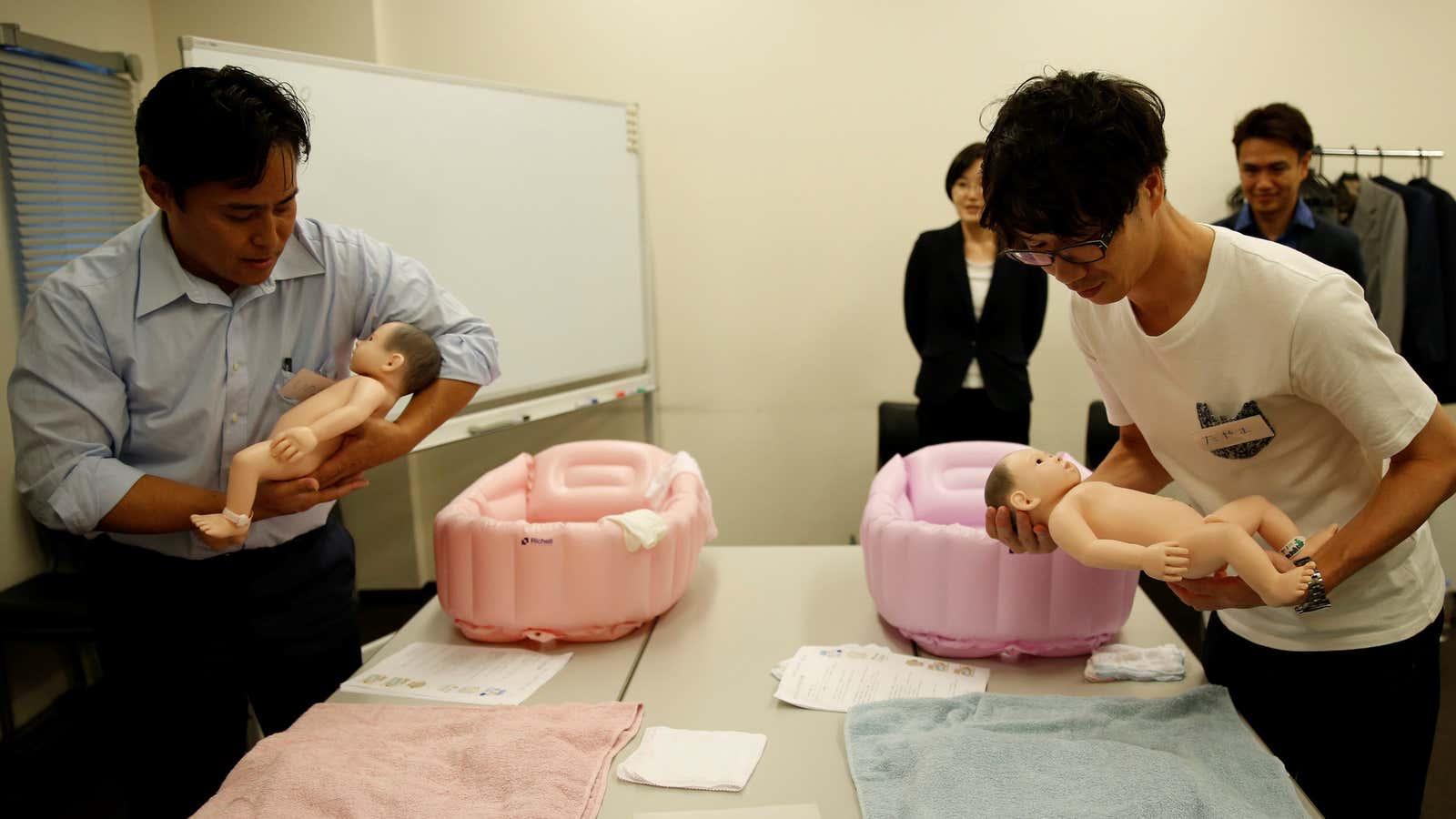Japan has one of the most generous paternity-leave policies among developed countries, but a look around the average Japanese office might not seem that way. Only about 2% to 3% of men in Japan take their allotted parental leave, and last year, a politician became the first ever in the country to take paternity leave.
According to a recent study by researchers at Kyushu University published in the peer-reviewed journal Frontiers in Psychology, peer pressure—or rather the perception of it—plays a big role in deterring Japanese men from taking time off after having a child. The study found that men wanted to take paternity leave regardless of others’ perceived positive or negative attitudes about it—meaning that any decision not to take paternity leave was due to a “perceived group norm,” and that the perception others have a negative attitude toward it is an “inaccurate assumption.”
“[O]ur findings suggest that the social issue of paternity leave in Japan is characterized by pluralistic ignorance,” said the study, which surveyed 299 married, working men between 20 and 49 years old. The authors define pluralistic ignorance as a “situation in which almost all members of a group privately reject group norms, yet believe that virtually all other group members accept them.”
According to the OECD, Japanese, as well as South Korean, men are entitled to paid paternity leave for as long as 12 months. The Japanese government has said it hopes (paywall) that 13% of men will take paternity leave by 2020. South Korea is another country that is trying to encourage more men to take paternity leave—just 4,874 men took paternity leave in 2015, when 438,000 babies were born, according to official statistics. The number of men who took leave rose to 7,616 in 2016. In 2005, just 208 South Korean men took paternity leave. Both countries are trying to reform labor and welfare policies to address a host of issues, such as an ultra-low birthrate, poor female participation in the workforce, and inefficient work practices.
The US is the only OECD country with no federal-level mandated paid parental leave.
The researchers who conducted the study ruled out traditional gender norms as a reason why so few Japanese men take paternity leave. While a vast majority of men in the 1980s still believed that “men make houses, women make homes,” the researchers said studies show that norm had lost widespread support by the 2000s. Indeed, the term ikumen (paywall)—iku meaning to nurture—is now broadly used in Japan to refer to a sort of stay-at-home dad who assumes child-rearing duties.
One reason that might still hold sway, the researchers contend, is that many men still believe they could suffer from negative evaluations in the workplace if they take paternity leave (though Japanese law prevents unfair treatment of employees who take parental leave).
The current attitude of Japanese men toward paternity leave is neatly summarized by the researchers as: “I want to but I won’t.” Though personal attitudes have clearly moved on from the conservative gender norms of previous generations, the continuing prevalence of “pluralistic ignorance” is still inhibiting men from adopting an attitude of “I want to, therefore I will.”
